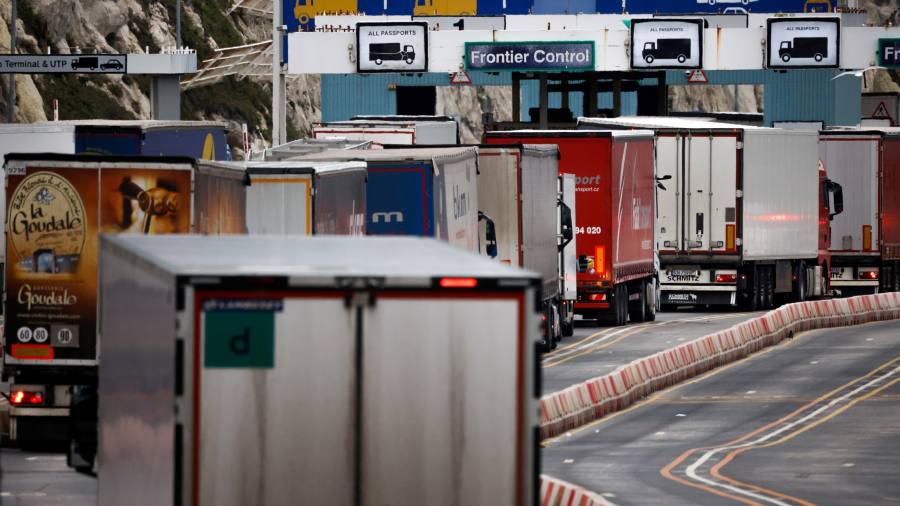
A future British government should adopt a “general policy” of aligning with EU regulations to improve post-Brexit trade, an independent cross-party business group said on Wednesday.
The recommendation to align with EU standards across swaths of manufacturing and general goods trade was among 114 proposals made in a report published by the UK Trade and Business Commission, which is co-chaired by Hilary Benn, a Labour MP and former cabinet minister.
The ideas, which include establishing a new Board of Trade to serve as an independent watchdog for UK trade policy, follow a pledge by Labour leader Sir Keir Starmer to build a “closer relationship” with Brussels if the party wins the next general election.
Benn, chair of the House of Commons Brexit select committee until it was disbanded by Boris Johnson’s government in January 2021, said the report provided “a menu of things that could be done to help our firms to grow and prosper”.
“It’s now time to listen to business about what needs to be done to fix the problems that we can all clearly see,” he added.
Starmer has vowed to “fix Brexit” after the EU-UK Trade and Cooperation Agreement (TCA) negotiated by Johnson created a host of barriers with Britain’s largest trading partner. This month, he said “the deal we’ve got, it was said to be oven-ready, it wasn’t even half-baked”.
But Labour has provided scant details about how it would reduce Brexit border frictions while keeping a promise not to rejoin the EU single market or enter a customs union with the bloc.
Based on extensive oral hearings and written evidence from more than 200 businesses and trade groups, the commission’s report set out an array of policy options ahead of the next election, to be held by January 2025, and the five-yearly review of the TCA, which will start the same year. It acknowledged that some of its proposals would require the co-operation of the EU.
To ease the impact of ending EU free movement, the body suggested a Youth Mobility Scheme for people aged between 18 and 30, reciprocal visa accords for musicians and other cultural workers, and rejoining an EU scheme to provide group visas for school trips.
Alongside a deal to align with the bloc’s veterinary and food standards, which Labour has already promised to work on, the commission called for the creation of an EU Regulatory Cooperation Council so London and Brussels can collaborate more broadly on future rules.
It also said the UK should strengthen ties with EU regulatory bodies, such as the European Medicines Agency and European Chemicals Agency, including making financial contributions, to promote “co-operation and harmonisation”.
The approach would mark a step-change in the current government’s policy of regulatory divergence from the EU, although research published in February by the UK in a Changing Europe think-tank showed business had been slow to embrace the idea.
Juergen Maier, former boss of Siemens UK, said policymakers needed to intervene to ease the economic damage inflicted by Brexit on companies of all sizes.
“The EU is the UK’s largest trading partner and a key driver in setting standards globally, so ending dogmatic divergence and replacing it with regulatory alignment where beneficial along with a new co-operation body to facilitate it really is a no-brainer,” he said.
The government said: “The Trade and Cooperation Agreement is the world’s largest zero tariff, zero quota free-trade deal. It secures the UK market access across key service sectors and opens new opportunities for UK businesses across the globe. Following the Windsor Framework both the UK and EU have publicly committed to maximising the opportunities of the TCA even further.
“The UK and the EU are allies, trading partners and friends. We will continue to work closely with the EU and its institutions on a range of shared interests to uphold the stability, security and prosperity of our continent.”